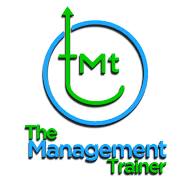Scrum Master Certification is a contemporary certificate. This certification will make you industry ready in Scrum and Project Management. These two days of study based on industry best practices includes preparing, training, combining instructor-led teaching and practical exercise

Scrum Master Certification is a contemporary certificate. This certification will make you industry ready in Scrum and Project Management.
These two days of study based on industry best practices includes preparing, training, combining instructor-led teaching and practical exercise and Scrum Master certification exam to affirm your insight on the topics. This curriculum is based on Scrum Guide.
Why Scrum Master Certification?
This qualification is an easy to study and contemporary certification that helps in elevating your credibility and integrity, in a competitive market.
It is designed to enhance your knowledge and project management credibility – demonstrating that you have extensive experience, education, and awareness of applicable management techniques required to be a Scrum Master.
Why Scrum Master Certification Through The Management Trainer?
Our highly engaging instructors are there to help you tailor your learning to specific professional and personal development needs – proactive and practical elements of the Scrum Master Certification Training Course will help you develop transferable skills.
Critical decisions are pivotal in determining whether a Project Manager is deemed capable or not, hence, having extensive knowledge can help to justify business cases and ensure that informed decisions are made, rather than impulsive choices.
Course syllabus
Scrum Master Certification comprises of two days of study based on industry best practices. It includes preparing, training, practical exercise and Scrum Master certification exam to affirm your insight on the topics.
Module 1: Introduction to Agile, and Scrum
What is Agile?
Origin of Agile
Agile Manifesto
Values of Agile
Scrum Overview
History of Scrum
Differences between Agile and Scrum
Agile Project Testing Principles
Focus of Lean
Origins of Lean
Lean in a Nutshell
Lean Temple
Lean Principles
Lean vs Agile
Module 2: Overview of Scrum
Key Features of Agile
Key Features of Scrum
Sprints
The Deming Cycle
Attributes of Scrum
Key Activities
Quality and its Importance
Kaizen Mindset
Incorporating Kaizen
Module 3: Scrum Artefacts
Product Backlog
Resource Requirements
User Stories
INVEST
Information Radiators Burndown Charts and Scrum Boards
Module 4: Sprints and the Scrum Framework
Sprints
Sprint Planning
What is MoSCoW
The MoSCoW Rules
Managing the Sprint Backlog
Tracking Progress
The Sprint Review
Sprint Retrospective
Cancelling a Sprint
Module 5: Roles and Responsibilities
Roles and Responsibilities in Scrum
Product Owner
The Development Team
Module 6: The Scrum Master
Scrum Overview
Product Owner
Development Team
Organization
Module 7: Facilitation, Coaching, and Servant Leadership
Servant Leadership
Servant Leadership and the Scrum Master
Developing Cohesiveness
Group Loyalty and Trust
Group Communication
Belbin Types and Roles
Team Development
Tackling the Learning Dip
Handling Difficult People and Situations
Managing Conflict and Moving Forward
Dealing with Someone Else’s Emotions
Presenting Clear Messages
Written Communication
Active Listening Skills
Motivation
The Humanistic Approach
Maslow’s Hierarchy of Needs
Module 8: Collaborate Decision Making
Decision-Making Theories
The Decision-Making Process
Tools and Techniques
Group Problem Solving and Decision Making
Questioning Techniques
Inclusive Decision Making (Weighting, Criteria, Pugh Matrix)
Priority Tasks
Module 9: Scaling and Adaptation
Scaling for Projects
Dealing with Change
Dealing with Risk
Monitoring a Project
Choosing the Right Metrics
Process Measurement Points
Criteria for Good Measures
Value Streams
Building a VSM
Scaled Scrum and Practices
Descaling
Metascrums
Course Offerings
Pre-course material
Training material
Scrum Master Training
Scrum Master Certification Examination
Experienced Trainer
Scrum Master Certificate
Exam
Scrum Master Exam
Type: 35 multiple choice questions
Duration: 60 Minutes
Supervised: Yes
Open Book: Yes
Pass Mark: 21/35 (60%)
Your certificate is received within two days of your exam
Please Note : Extra time is provided for the non-native English speakers and few special cases.
The APMG International AgilePM, Agile Change Agent and Swirl Device logo is a trademark of The APM Group Limited, used under permission of The PM Group Limited.
All rights reserved. AgilePM® is a registered trademark of Agile Business Consortium Limited. All rights reserved. PMI®, PMBOK® Guide, PMP®, CAPM® and PMI-ACP® are registered marks of the Project Management Institute(PMI)®.
© 2025 coursetakers.com All Rights Reserved. Terms and Conditions of use | Privacy Policy